The Straight Shot: Federal vaccine updates - Aug 7, 2025

weyo - stock.adobe.com.
2025 has seen many changes in federal vaccine policy and programs. This list—published Aug 7, 2025, and drawn from news reports and other information—ranks the most significant changes to vaccination policy, with brief commentary from the editors.
Editors’ note: Last week, CDC released new data showing that childhood vaccination rates are declining. The overwhelming majority of parents continue to vaccinate their children, but MMR coverage has dipped to 92.5 percent of kindergarteners, which is less than the 95 percent level for a population that experts recommend for protection against measles. There is also wide variation, with just 78.5 percent of Idaho kindergartners up to date on measles immunization, compared to 97.6 percent in Mississippi.
The Straight Shot in your inbox
Stay up-to-date on threats to vaccine safety, changes in federal policy, and vaccine availability and accessibility with The Straight Shot. Click below to get these updates directly in your inbox.
Sign up for email updatesNew and updated
1. BARDA pulls $500 million of funding from mRNA vaccine development
On Aug. 5, Sec. Kennedy announced that the Biomedical Research and Development Administration (BARDA) was cancelling 22 programs supporting the development of mRNA vaccines, including a contract for the development of a vaccine to protect against H5N1 influenza. Sec. Kennedy claimed that BARDA reviewed evidence, consulted with experts and concluded mRNA vaccines do not perform well against viruses (such as the Covid virus) that cause upper respiratory illnesses,and that BARDA will focus on whole virus and novel vaccine platforms, though he did not specify which novel vaccine platforms will be the focus of BARDA investments. HHS has not made the science that underpins this decision public.
Editor's note: It is not surprising that experts in pandemic preparedness are sharply criticizing this action. The advantage of mRNA vaccines is they can be manufactured very quickly and can be adapted as viruses mutate, which is particularly important for Covid and influenza. - SD
@cspi_nutritionaction CSPI President Dr. Peter Lurie appeared on CNN to discuss RFK Jr.'s stunning decision to pull $500 million in funding away from development of mRNA vaccines - a decision that will have far-reaching impacts beyond just vaccines for COVID. Video source: CNN
♬ original sound - CSPI
2. HHS stops encouraging hospitals to report Covid staff vaccination rates
On Aug. 1, the Department of Health and Human Services and the Center for Medicare and Medicaid Services announced the end of an incentive program that rewarded hospitals for "hospital staff vaccination reporting" on the grounds that the data was "a tool for public shaming, not public health." The announcement, limited to Covid vaccine reporting, appears to leave hospital influenza vaccination reporting intact. Research has established that vaccination of hospital staff against influenza is associated with less disease among patients.
Editor's note: The Society for Healthcare Epidemiology of America recommends Covid vaccination as an "effective intervention to reduce the risk of transmission of infectious diseases in all healthcare settings." Ending public disclosure of hospital Covid vaccination rates takes away information that patients may find material to their decisions about where to seek care. So much for “radical transparency”. – PL
3. Secretary Kennedy ends HHS recommendation for thimerosal-containing influenza vaccines
On Jul. 22, Secretary Kennedy adopted the recommendation of his new Advisory Committee on Immunization Practices (ACIP) to drop support for influenza vaccines containing the preservative thimerosal. This recommendation was made after HHS refused to let CDC scientists present to the Committee about multiple studies that failed to show harm from the preservative but instead permitted a known thimerosal critic to present.
This policy change could reduce vaccine access in the areas that still use thimerosal-containing multi-dose containers as a result of supply-chain needs; reimbursement for these vaccines is now also in doubt.
Editor’s note: Secretary Kennedy did not adopt recommendations supportive of vaccination made at the same time. These backed influenza vaccination and use of monoclonal antibodies against respiratory syncytial virus. Actions against vaccines are fast tracked; those that support vaccination are held without explanation. – SD
4. CDC Vaccine Advisory Committee blocks input from medical and public health groups
The CDC’s ACIP historically has conducted much of its work through working groups that bring together committee members with national experts and liaisons from leading medical and public health organizations, including the Infectious Diseases Society of America, the American Nurses Association, and the Association of Immunization Managers. On Jul. 31, however, HHS informed these liaisons that their participation in the working groups was no longer welcome on the grounds that they are "special interest groups." (See Ongoing Item 2 below)
Editor’s note: Much of the key work of developing recommendations is handled by working groups. With this action, HHS is stripping these groups of critical expertise, removing an obstacle to the imposition of arbitrary and unsubstantiated policies.– SD
5. Secretary Kennedy attacks safety of aluminum adjuvants in vaccines
In an unusual blog post on TrialSiteNews, Secretary Kennedy took aim at a Danish study published in Annals of Internal Medicine that found no association between aluminum adjuvants in vaccines and various allergic and neurodevelopmental conditions. Aluminum adjuvants, used in many vaccines, improve vaccine efficacy by enhancing the immune response to the vaccine. He described the study as "a deceitful propaganda stunt by the pharmaceutical industry" that uses "deceptive devices" and an example of "garbage-in, garbage-out exercises in statistical manipulation." The author of the study responded to Sec. Kennedy’s attacks, writing "none of the critiques put forward by the Secretary is substantive."
These comments should be read in the context of the MAHA report (See Ongoing Item 7 below) alleging a potential connection between childhood vaccines and chronic diseases, and the new ACIP workgroup on the cumulative effects of the childhood vaccination schedule (see New Item 4 above describing how CDC is limiting the external input and expertise on these workgroups).
Editor's note: Sec. Kennedy has many ways to explore scientific concerns with a published scientific study beyond a slapdash blog piece on a hospitable website. He could have sought input from experts in pharmacoepidemology and vaccine safety. He could have asked the National Academies of Science, Engineering, and Medicine to provide a review of the strengths and weaknesses of the methodology. Instead, he wrote a screed laden with insults that revealed a profound lack of understanding of epidemiological research. If HHS leaders have concluded aluminum adjuvants are unsafe, that may lead to policy changes with a profound impact on the availability of vaccines. – JR
6. FDA official with responsibility for vaccines out
Last week we learned that Vinay Prasad, who had led FDA’s Center for Biologics Evaluation and Research for less than three months, had left the agency under pressure from supporters of President Trump.
Editor's note: Given that the Center has the lead role in regulating vaccines, we will be watching closely to see who replaces him. – PL
The Straight Shot in your inbox
Stay up-to-date on threats to vaccine safety, changes in federal policy, and vaccine availability and accessibility with The Straight Shot. Click below to get these updates directly in your inbox.
Sign up for email updatesOngoing
7. Potential changes to the Vaccine Injury Compensation program
Secretary Kennedy posted on X on Jul. 28 that he is working with the Attorney General to “fix” the Vaccine Injury Compensation Program (VICP), a longstanding effort that provides limited liability for vaccine manufacturers and administrators, thus reducing market barriers, as well as compensation for people who have been injured by vaccines.
He followed the post with an interview with Charlie Kirk but failed to articulate any concrete steps he and HHS are taking to address the issues he identified. This is on the heels of Sec. Kennedy bringing Drew Downing, a lawyer with experience suing vaccine manufacturers, into HHS to work on the VICP. HHS has never stated specifically what Downing was brought on to accomplish.
Editor's note: Changes to the Vaccine Injury Compensation Program have the potential to dramatically reduce access to vaccines. This will remain on the list until we know more. – JR
8. ACIP launches new investigations on vaccine safety
At their June meeting, the ACIP chair announced two new workgroups. The first aims to review the cumulative effects of the childhood and adolescent vaccination schedules. The second intends to examine vaccination recommendations that have not been reviewed in the past seven years, including the birth dose of hepatitis B vaccine–long a target of anti-vaccine organizations.
Editor's note: The membership of these workgroups will be a signal as to whether their outcome has been predetermined, but they won’t be including liaisons from many major medical groups (see number 4 in New and Updated). – SD
9. HHS mismanages the measles response in the Southwest
As of Aug. 6, 2025, there have been 1,356 confirmed cases of the disease, including 171 hospitalizations and three deaths; this is the largest number of cases in a single year in the US in 33 years. California now has more cases in 2025 than in all of 2024. CDC added a checklist for summer camps to its measles toolkit. Senator Schumer has called for Secretary Kennedy to declare the outbreak a public health emergency.
One challenge in the response is Sec. Kennedy making misstatementsabout the safety of the measles vaccine, endorsing unproven treatments, and preventing experts from briefing the public. HHS also cut grant funds for the states' measles responses.
Editor's note: While the number of measles cases in Texas has slowed, July saw at least 89 confirmed cases across the country, more than we often see in an entire year. With kids going back to school this month, we may start to see more measles circulate, putting communities at risk. – SD
10. HHS hires anti-vaccine activists to review vaccine safety data
HHS has hired David Geier, a leading source of misinformation about vaccines, to investigate questions related to vaccine safety. The Wall Street Journal has reported on Geier’s attempts to gain access to various databases within HHS, including one that he had twice been precluded from using as a result of violating ethical rules. “He has no record in the scientific community of doing valid work,” said Dr. Walter Orenstein, an epidemiologist and former director of the U.S. National Immunization Program at the CDC.
The recent hiring of Lyn Redwood, another leading anti-vaccine individual, at HHS poses similar concerns.
Editor's note: This item, detailed in previous updates of The Straight Shot, stays on our list until the Geier report is released. – JS
11. HHS moves $500 million to study older vaccine technology favored by two appointees
As noted in the New and Updated item 1 above, HHS has permanently pulled $500 million from contracts for next-generation vaccines and is using the funds to study a type of “whole-virus" vaccine technology championed by two political appointees. “Whole-virus” vaccines are 70 years old and thought by many scientists to be less effective and cause more adverse effects than newer technologies.
Editor's note: This item, described in more detail in previous updates of the Straight Shot, will stay on our list until we learn more about this enormous investment of federal resources. – JS
12. HHS cuts funds for vaccination in states and for its own vaccine staff
A federal judge has ruled that the Administration cannot proceed – in certain states that sued – with billions in cuts to state public health funds. In the other states that did lose funding, some funds were used to support vaccination clinics; other funds were used for outbreak monitoring and response. Personnel cuts to CDC vaccine activities have remained in place.
Editor's note: This item, detailed in previous updates of The Straight Shot, stays on our list until the litigation is resolved. – JR
13. White House issues an initial MAHA report
On May 22, the White House issued the Make Our Children Healthy Again Assessment. One section of the report was dedicated to concerns regarding vaccines, questioning the expansion of the childhood immunization schedule, the adequacy of clinical trials, the effectiveness of safety monitoring, the integrity of the VICP, and the role of vaccine mandates. The report has come under fire for the inaccuracy of data as well as errors in citations as a result of the use of generative AI. (No change from the previous update.)
Editor's note: We will keep this issue on the list until the MAHA Commission’s final report is issued, expected by August 12. – SD
14. HHS and autism
On April 10, Sec. Kennedy announced in a cabinet meeting that HHS has launched an effort to understand the causes of autism, with results expected in September. He has since amended that timeline, saying that there will be some information in September and “more definitive” information coming six months after that. On May 7, CMS and NIH announced that they will be sharing data in order to investigate the causes of autism. We're watching whether this effort will proceed in a scientifically rigorous manner, including whether it will attempt to point to vaccines as the cause of autism. On May 27, the NIH issued the funding opportunities for its Autism Science Data Initiative. (No change from the previous update.)
Editor's note: We’ll keep this issue on the list as we anticipate this to be an active area given Secretary Kennedy’s focus on this topic. – PL
Archived this week
1. Sec. Kennedy misleads on vaccines in Tucker Carlson interview. In an extended interview, Secretary Kennedy made a number of false or misleading statements about vaccine safety and vaccine policy, including asserting that:
- A CDC study found a large increase in the risk of autism after hepatitis B vaccination. In fact, when completed and published in 2004, the published study did not reach this conclusion and found inconsistent results on other outcomes, ending in a call for additional studies. Multiple studies around the world have failed to find a connection between vaccination and autism.
- 50 percent of revenues to pediatric practices come from vaccines. In fact, pediatricians make minimal net revenue from vaccinating patients.
- Dr. Paul Offit voted to add the rotavirus vaccine to the vaccine schedule when he was working on a different rotavirus vaccine, and so had a conflict of interest. According to the transcript of the June 1998 ACIP meeting during which the committee voted on the recommendation, Dr. Offit did not vote because he was not even a member of ACIP. Dr. Offit joined ACIP in October 1998.
This is not a complete list of the falsehoods and misleading statements in the interview.
Editor's note: Although statements from these interviews are alarming, they are also helpful in that they give insights into where Secretary Kennedy may be going with vaccines.– PL
2. New details emerge about how new FDA center director overruled career scientists on Covid vaccine approval. In one of his first actions at the FDA, Dr. Vinay Prasad (the new Director of the Center for Biologics Evaluation and Research, which oversees vaccine approval), overruled career scientists at the agency by restricting the populations for which two Covid vaccines were indicated. Although agency scientists had concluded that the vaccines were safe and effective, Dr. Prasad cited the potential for unknown risks to emerge. External scientists who reviewed his comments stated that he had failed to fully consider the negative health effects of Covid infection as part of the decision.
Editor's note: We’ll be watching other actions coming out of CBER and FDA to see if career scientists continue to be overruled by political appointees. – PL
3. Secretary Kennedy takes action on ACIP recommendations. At a hearing on his proposed budget on June 24, Sec. Kennedy falsely claimed that there was no science to support the recommendation that pregnant women receive Covid vaccinations. Currently, the CDC’s own website says that pregnant women are at increased risk of adverse outcomes from Covid infections and that studies that involve hundreds of thousands of people have shown that these vaccines are safe and effective before and during pregnancy and are beneficial to both the woman and her baby.
HHS previously shared an FAQ document with Congressional offices that attempted to justify removing the recommendation that healthy pregnant women and children receive the Covid vaccine. This document is riddled with inaccuracies; it cites unpublished and disputed studies, and mischaracterizes and omits studies whose findings do not support the change in recommendations. Meanwhile, based on the available data, the American College of Obstetricians and Gynecologists strongly recommends Covid vaccination during pregnancy.
4. FDA approves Flu Mist for 2025-2026 season. As expected, the FDA approved the updated strain of the nasal flu vaccine for the fall.
5. FDA approves Spikevax for at-risk children. On July 10, Moderna announced the approval by FDA of its mRNA Covid vaccine, Spikevax, for children 6 months to 11 years old who are at increased risk of Covid. According to the CDC, the vaccine will still be available to healthy children based on shared clinical decision-making between the provider and the parents.
6. CDC leadership. Susan Monarez was confirmed as the CDC Director by the Senate on Jul. 29, so we can now archive this item.
Editor's note: The CDC Director is responsible for overseeing the agency's work on vaccines, including updating the immunization schedule. She will have a key role to play in many of the federal policy decisions around vaccines. – JR
Tags
Topics
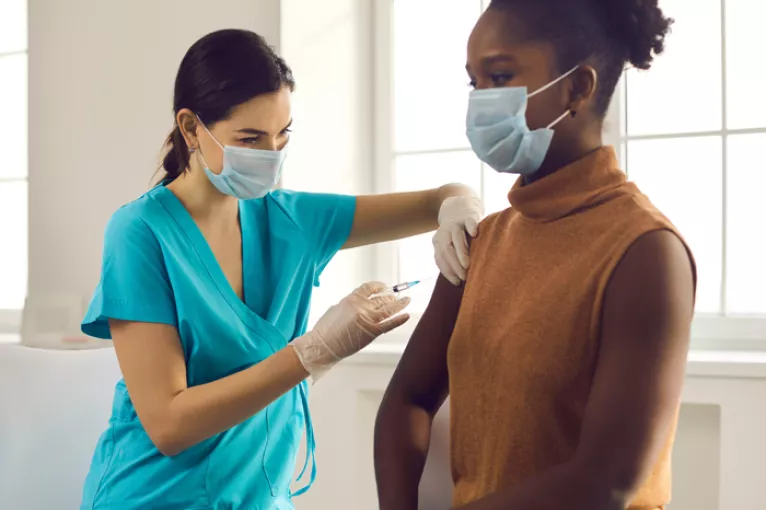
All Straight Shot updates
2025 has seen many changes in federal vaccine policy and programs, some of which threaten to harm the health and safety of millions of Americans. The Straight Shot—drawn from news reports and other information—ranks the most significant changes to vaccination policy, with brief commentary from the editors.
The authors
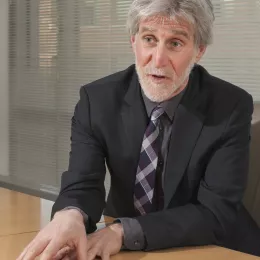
Peter Lurie, MD, MPH
President and Executive Director

Sarah Despres

Josh Rising, MD, MPH

Joshua M. Sharfstein, MD
The latest threats to vaccines
Off-label use of COVID-19 vaccines was once discouraged but has become common amid new guidelines
Vaccines
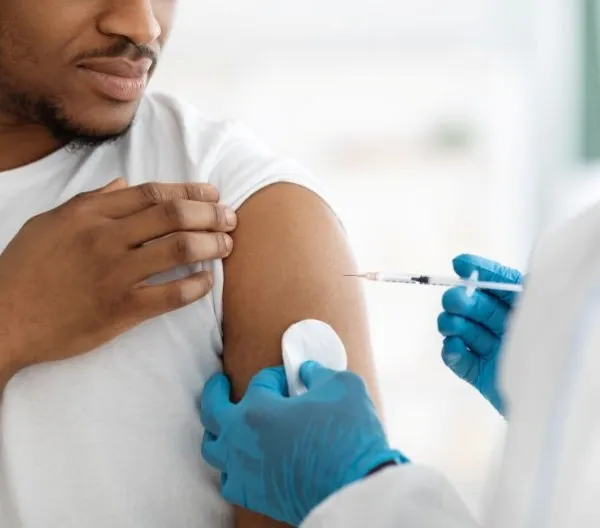
Inside the high-stakes battle over vaccine injury compensation, autism, and public trust
Vaccines

Do pediatricians recommend vaccines to make a profit? There’s not much money in it
Vaccines

CDC purge and Covid vaccine restrictions threaten public health
Government Accountability
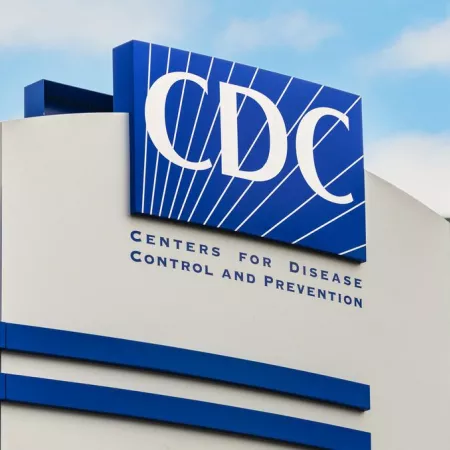
Pediatricians’ association recommends COVID-19 vaccines for toddlers and some older children, breaking with CDC guidance
Vaccines
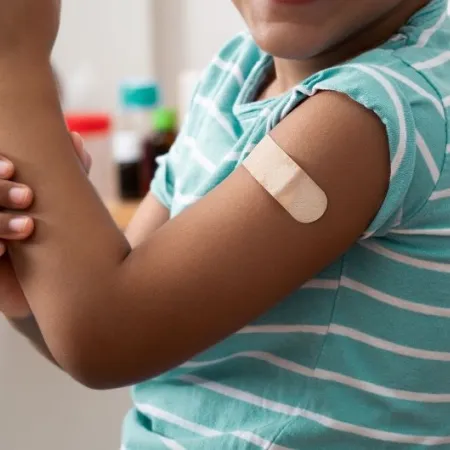
CSPI is your food & health watchdog
We envision thriving communities supported by equitable, sustainable, and science-based solutions advancing nutrition, food safety, and health.
As a nonprofit organization that takes no donations from industry or government, CSPI relies on the support of donors to continue our work in securing a safe, nutritious, and transparent food system. Every donation—no matter how small—helps CSPI continue improving food access, removing harmful additives, strengthening food safety, conducting and reviewing research, and reforming food labeling.
Please support CSPI today, and consider contributing monthly. Thank you.
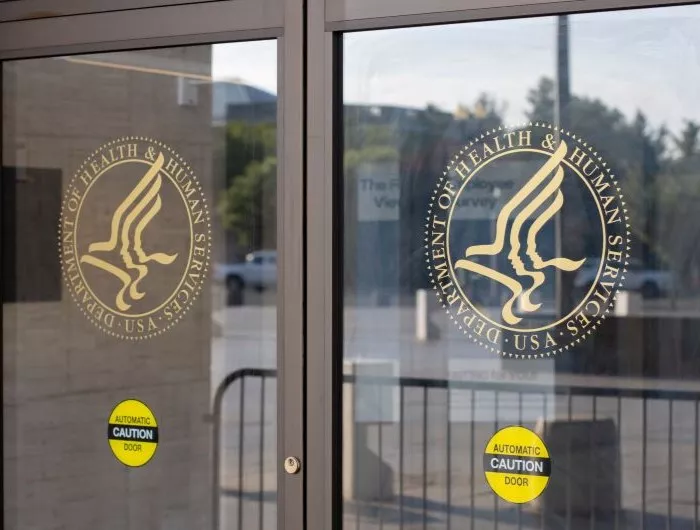
How CSPI is fighting threats to public health
Safe, nutritious food. Effective medicine. Empowered consumer choice. Honest and democratic government. These key building blocks of an American way of life can only be fully realized in a system that respects evidence, transparency, and accountability—a system where leaders believe in science and work for the public interest.

